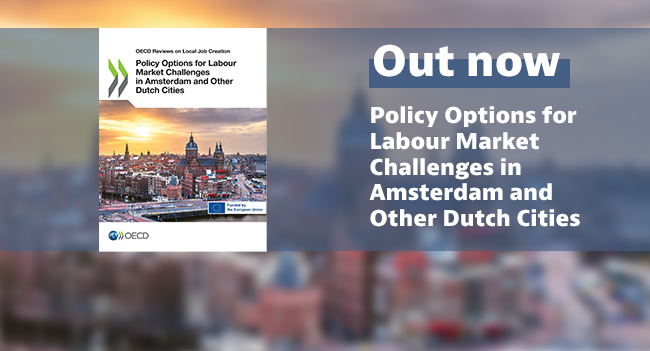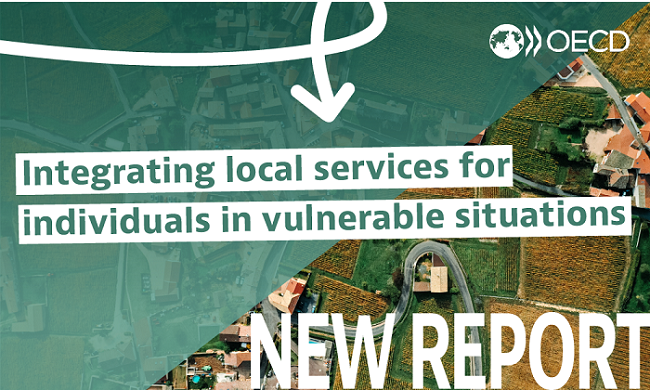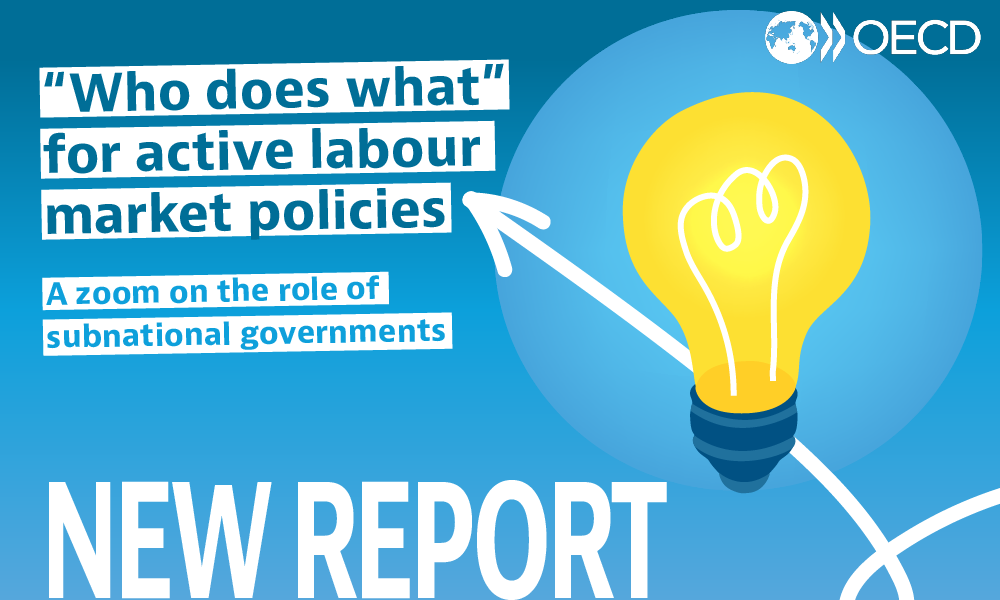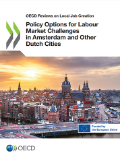Local Employment and Skills
A skilled workforce represents an important tool for local economies to attract investment. We support the development of local employment and skills policies that connect employers with the talent they seek and prepare workers for transitions for the future of work.
What's the issue?
Automation, digitalisation and the green transition create challenges but also new opportunities for local labour markets. Across the OECD, there is increasing labour market polarisation with a decline in the demand for middle-skilled workers and an increase in the demand for high- and low-skilled workers. At the local level, these trends have an uneven impact across regions.
How do we work?
We examine the role of these megatrends on local labour markets, in order to support the development of policies and skills strategies that can foster economic development and quality job creation. We provide countries with research and analysis, tailored policy advice on local employment and skills policies, international peer exchange and support with implementing reforms.
OUR AREAS OF WORK
Local Employment Policies
Local employment systems offer efficient matching of employers and workers at the local level. In our work, we review how employment systems can be best geared to local needs through active labour market policies sensitive to local needs and their integration with other local services.
Learn more:
Policy implementation
We support national, regional, and local government with technical support to implement reforms of employment and skills policies. We do this through in-depth reviews of current policies and legislation, international reviews of successful policies, capacity building and international exchanges.
Learn more:
Peer-to-peer exchange
Policymakers and practitioners benefit from meeting with their peers on what works and why. We facilitate these exchanges through background research, identifying relevant examples and creating the space for exchange through webinars, workshops and study visits.
Learn more:
Local Skills Policies
Local skills systems connect local employers, workers, government, social and economic partners, universities and training providers to support growth, innovation and better jobs. We support building stronger skills systems where local employers find the talent they seek and individuals have access to life-long learning opportunities.
Learn more:
OUR RECENT REPORTS
Future-Proofing Adult Learning in Berlin, Germany
February 2022
Preparing for the Future of Work Across Australia
September 2021
Our latest publications
- Unleashing Talent in Brussels, Belgium (2023)
- Policy Options for Labour Market Challenges in Amsterdam and Other Dutch Cities (2023)
- Organisation of public employment services at the local level in Sweden (2023)
- Participation of the social economy in the provision of Sweden’s public employment services (2023)
- Future proofing adult learning systems in cities and regions: A policy manual for local governments (2022)
- Better using skills in the workplace in the Leeds City Region, United Kingdom (2020)
- Future Proofing Adult Learning in Berlin, Germany (2022)
- Regional Economic Inactivity Trends in Poland (2021)
- Preparing for the Future of Work Across Australia (2021)
- Future Proofing Adult Learning in London, United Kingdom (2021)
- Preparing for the Future of Work in Canada (2020)
- Preparing the Basque Country, Spain for the Future of Work (2020)
- Intégrer les immigrants pour stimuler l’innovation au Québec, Canada (2020)
- Read more in the OECD Local Economic and Employment Development (LEED) Papers series
- Read more in Local Job Creation Review Series
- Read more in the Local Economic and Employment Development (LEED) Publication series
Our latest events
- 21 June, 2023, digital event: Integrated local service delivery: How to get there?
- 16 May, 2023, digital event : Bridging the Great Green Divide: International Learnings for Scotland, UK
- 14 March 2023, digital event: "Bridging the Great Green Divide" Is the green transition starved of skills?
- 13 December 2022, digital event: Human-centred design and local employment services
- 27 September 2022, digital event: Mass layoffs and local impacts: what we know and what can be done
- 15-17 June 2022, Cork, Ireland: OECD Local Development Forum
- 15-17 February 2022, digital event, OECD Local Skills Week
- 4 February 2022, digital event: Building an inclusive ASEAN through human-centered, sustainable and resilient partnerships
OUR LATEST VIDEOS & BLOGS
Will there be a green divide?
The green transition is reshaping jobs, firms and places. It is also creating “winners and losers” as we race to reach net zero, with gaps emerging in the geography of green jobs. Left unchecked, this could lead to some places being left behind, jeopardising the green transition. What can cities and regions do to boost green job creation?
Lukas Kleine-Rueschkamp and Lana Fitzgerald share new findings about green jobs in regions.
Digital commerce is changing America's main streets...could it be for the better?
The past two-and-a-half years have represented one of the most challenging times for Main Street businesses across the US. The global pandemic transformed the way we work and shop. While many businesses were able to weather the storm of the global pandemic shutdowns, running a small business along our Main Streets is now more complex – with managers grappling with new workforce issues, rising inflation, and greater competition from major online retailers.
Matthew Wagner, Chief Program Officer at Main Street America, makes the case that small businesses can use these changes to their advantage by adapting new technologies and harnessing the power of place
A balancing act: What's behind the uneven jobs recovery in regions after COVID-19?
In 1918, Orison Swett Marden wrote that “work, love, and play are the great balance wheels of man’s being”. More than a century later, COVID-19 has decidedly knocked us all “off-balance” – and our regions are likely to take some time to regain it. But which regions should we be most concerned about?
Lars Ludolph, Harm-Jan Rouwendal and Alison Weingarden help us unpack employment rates pre- and post-COVID.

















